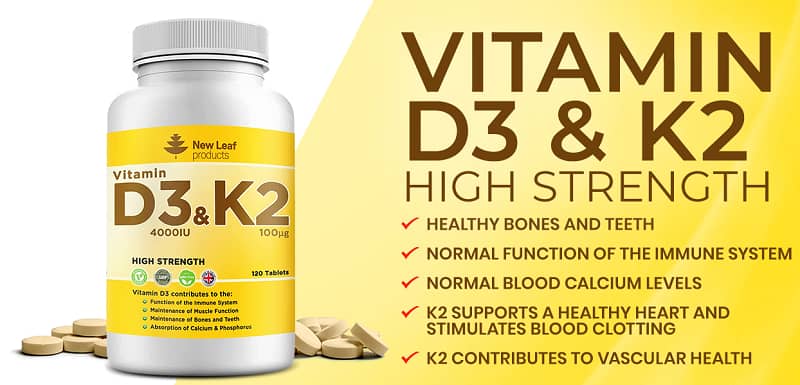Your health’s finest defender is the synergy of vitamin D3, K2, and magnesium blends. Explore our guide to learn how these three support heart health, bone health, and general wellness.
Staying healthy these days can present a challenge. Between work and personal responsibility, finding the time to eat healthily, work out, and do what you need to do is difficult.
The need to stay healthy in such a busy world is one reason why supplements are popular. Anything you can do that could improve your health is a positive.
Vitamins D3, K2, and magnesium are useful supplements that may improve your health and reduce stress.
About D3
Vitamin D3 is an essential part of your overall well-being in that it helps your body correctly process calcium.
In general, D3 is mainly provided by sunlight exposure (90 percent of your total daily need), and the difference is made up of the foods you eat. However, due to modern life leaving you indoors regularly, getting the amount of D3 you need can be very difficult, as it is difficult to make up the differences through diet.
A lack of D3 is a common issue, leading to health concerns such as fatigue, muscle weakness, immune issues, and problems with your bones. This need for D3 is why D3 supplements are popular.
There are also supplement types of vitamin D3 that can be used for general health reasons or to help or avoid vitamin D deficiency.
There are two kinds of vitamin D. One is vitamin D3. It is different from vitamin D2 in both how it is made and where it comes from. The piece talks about what vitamin D pills do and what the pros and cons of vitamin D3 are.
It also has a list of other important vitamin D3 sources. Vitamin D does many things in the body, but the most important ones are:
- Growing bones
- Changes in bones
- Controlling the movement of muscles
- Changes in blood sugar (glucose) into energy
Adding Vitamin K
Vitamin K works alongside D3 to possibly improve the overall effectiveness of the supplements. As vitamin K can be lacking in your diet, a supplement may help.
By adding vitamin K, you may improve your body’s ability to absorb calcium from the blood.
You might take D3 pills to help your body use calcium better, so you want to help make sure that calcium gets absorbed by the bones instead of building up in other parts of the body and not being used.
Vitamin K also has the added benefit of possibly preventing certain types of blood clotting.
The Need for Magnesium
The addition of magnesium also assists D3 in possibly improving your overall health. While vitamin D3 helps your body absorb calcium, magnesium helps on the other end of the process by making calcium easier to absorb.
With the addition of magnesium, calcium becomes soluble, which may improve your body’s overall ability to absorb it.
Like D3 and vitamin K, you may find your diet lacks magnesium and when you add D3 to your diet via supplements, you’ll also want your magnesium levels to increase.
Final Thoughts
When taking supplements, you’ll find that many vitamins and chemicals your body needs work together or in combination with each other.
D3 is one of the easiest chemicals to be deficient in and it serves the vital role of improving your body’s energy levels and overall bone health.
Without the ability to efficiently absorb the calcium you eat, you may develop health issues such as osteoporosis. However, taking D3 by itself does not maximize your ability to make use of its many possible positive effects.
By combining it with vitamin K and magnesium, you may improve your body’s ability to absorb calcium and also make the calcium itself easier for your body to properly make use of.
Luckily, many well-made supplements exist that blend these three vitamins in the proper amounts.
Related Posts:
For more health updates, follow us on Facebook.









